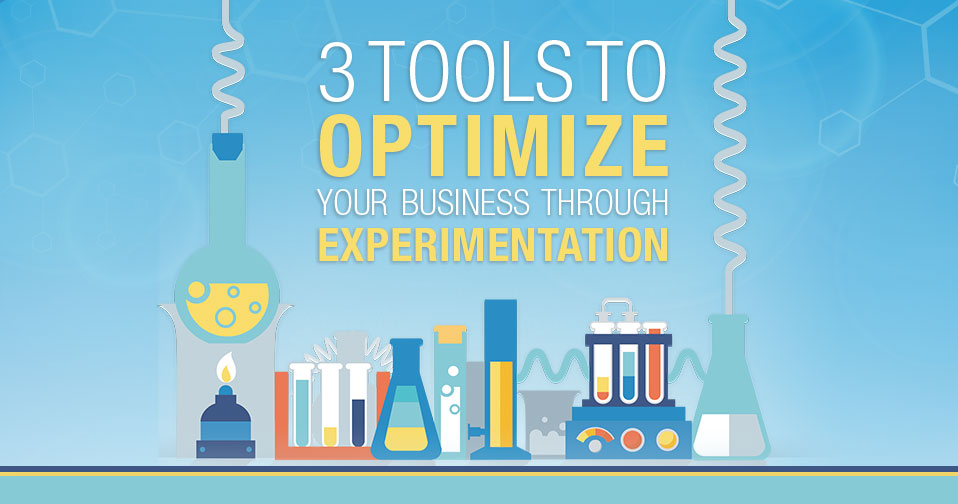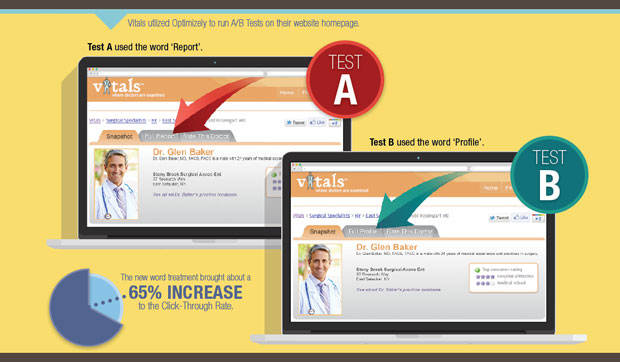3 Tools To Optimize Your Business

In the parable of the shrewd manager, Jesus asks, “So if you have not been trustworthy in handling worldly wealth, who will trust you with true riches? (Luke 16:11)” The Lord has entrusted each of us with wealth. Our job as business leaders is to be good stewards of the resources he has entrusted to us in our companies.
When you’re sitting in the C-suite, it’s tempting to rely on your experience and your gut to make business decisions. But as we all know, we don’t have all the answers, and many times our assumptions can lead to foolish squandering of resources. Over the past few years, a number of products have been introduced to the market that make it easy for any business leader to test assumptions and business hypotheses through experimentation. I have chosen 3 to share with you which have helped me optimize my businesses through experimentation. I hope these tools will help you be the best steward of the resources you shepherd.
Optimizely
Optimizely makes A/B testing your website super-simple (and affordable). What’s A/B testing? A/B testing is a simple way to test changes to your website against the current design and determine which variations produce the most positive results. It is a method to validate that any new design or change to an element on your webpage is improving your conversion rate before you make that change to your site permanent.
Small changes can yield major results, as Vitals (a leading website committed to helping patients find and connect with quality doctors) found by changing one word on their homepage. Here’s the story from Irving Weiss, Vitals’ Vice President of Web Marketing:
“One of our employees suggested we run an Optimizely test to rename the “Full report” tab to “Full profile.” The theory behind this test was that people are more apt to associate the word “profile” with a person and the word “report” with an object, making it less obvious that the “Full report” is about a doctor.
Most people on our team found it hard to believe that a single word could really have a meaningful impact on user behavior, so this experiment was definitely met with resistance. Prior to Optimizely, testing usually meant more people needed to be involved, which made for a longer process, and didn’t typically allow for a quick and easy test.
Once the experiment got the approval, it didn’t take more than a day to discover that the naysayers were totally wrong; the new treatment brought about a 65% increase to the CTR!”
Irving Weiss, Vitals’ Vice President of Web Marketing

MailChimp
If email marketing has a significant impact on your business’ bottom line, you should check out MailChimp’s powerful experimentation tools. Have you ever wondered what’s the best day to send your marketing emails? Weekdays? Weekends? What time of day? Early morning, or late afternoon? What kind of subject line works best for your audience? Something with a hard sell? Or something more subtle and informative? Will people open your email if you include “FREE” in the subject line?
The best way to answer these and other questions you have is to experiment with your email marketing campaigns and MailChimp makes this easier than any other email marketing software provider I have come across. MailChimp’s email optimizer allows you to run A/B tests on subject lines, from names and send dates and send times.
The Lean Startup
Before you write this one off because your company is not a startup, you should know that the principles laid out in this book were pioneered by Toyota during their heyday. The Lean Startup is not a piece of software, but rather a book that has spawned a movement of companies thinking differently about how to build, measure and learn about their products.
"The Lean Startup centers around the concept of the “minimum viable product” which encourages business leaders to strip their ideas down to their very core."Jordan Raynor
Written by entrepreneur Eric Ries, the lean startup methodology favors experimentation over elaborate planning, feedback from customers over gut intuition, and iterative development over traditional “big up front” investment in a particular product. The Lean Startup centers around the concept of the “minimum viable product” which encourages business leaders to strip their ideas down to their very core, build the most minimum version of the product possible in order to test your hypotheses, and then get it into customers’ hands as quickly as possible to learn, repeat, and improve.
Again, this isn’t just for startups. Some of the largest companies in the world from GE to Intuit have begun implementing these lessons, using technology to experiment and optimize their businesses.
Learn More About These 3 Tools Here:
optimizely.com mailchimp.com theleanstartup.com

By: Jordan Raynor
Jordan Raynor is a digital strategist who has spent his career solving real problems in government, politics and business through technology. Jordan is a Co-founder of Citizinvestor and a Co-founder of Digital Doulos.
Read More Articles by Jordan Raynor





